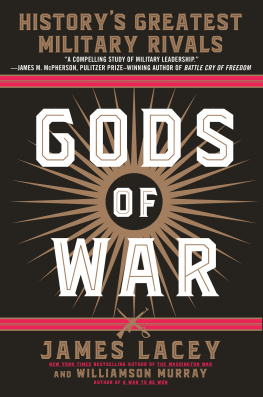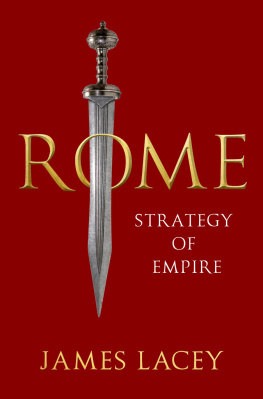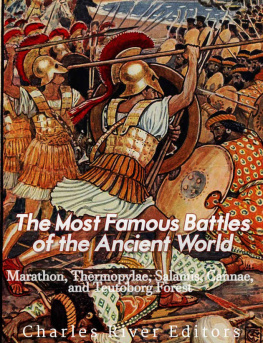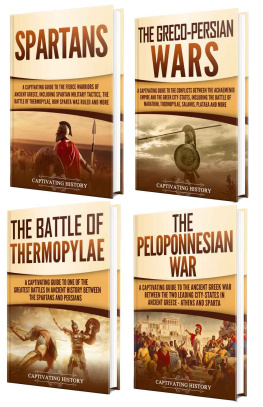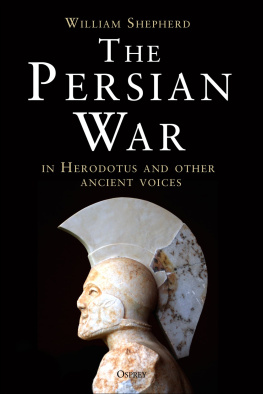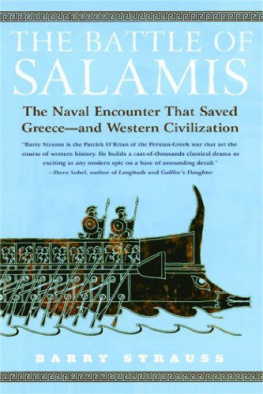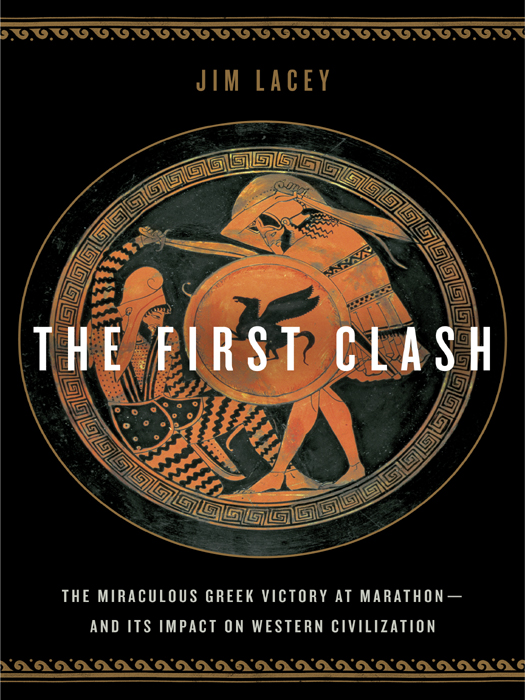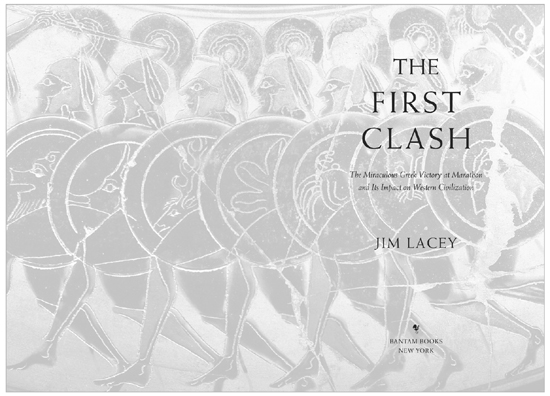Also by Jim Lacey
Takedown: The 3rd Infantry Divisions
Twenty-one Day Assault on Baghdad
Pershing: A Biography
The Canons of Jihad: Terrorists Strategy for Defeating America (editor)
The Making of Peace: Rulers, States, and the Aftermath of War (co-editor, with Williamson Murray)
Copyright 2011 by James Lacey
Maps copyright 2011 by Jeffrey L. Ward
All rights reserved.
Published in the United States by Bantam Books, an imprint of The Random House Publishing Group, a division of Random House, Inc., New York.
B ANTAM B OOKS and the rooster colophon are registered trademarks of Random House, Inc.
Grateful acknowledgment is made to Pantheon Books, a division of Random House, Inc., for permission to reprint excerpts from The Landmark Herodotus: The Histories by Robert B. Strassler, translated by Andrea L. Purvis, copyright 2007 by Robert B. Strassler. Reprinted by permission of Pantheon Books, a division of Random House, Inc.
LIBRARY OF CONGRESS CATALOGING-IN-PUBLICATION DATA
Lacey, Jim
The first clash: the miraculous Greek victory at Marathon and its impact on Western civilization / Jim Lacey.
p. cm.
eISBN: 978-0-553-90812-1
1. Marathon, Battle of, Greece, 409 B.C. Influence. 2. GreeceCivilizationTo 146 B.C. 3. IranHistoryTo 640 A.D. I. Title.
DF225.4.L33 2011 938.03dc22 2010046214
www.bantamdell.com
Jacket design: Christopher Sergio
Jacket photograph: National Museum of Scotland / The Bridgeman Art Library
v3.1
Dedicated to
Ali and James
The mountains look on Marathon
And Marathon looks on the sea;
And musing there an hour alone,
I dreamd that Greece might yet be free
For, standing on the Persians grave,
I could not deem myself a slave.
L ORD B YRON ,
THE ISLES OF GREECE
Contents
PART I
AN EMPIRE MADE IN WAR
PART II
THE RISE OF GREECE
PART III
PRELIMINARY MOVES
PART IV
WAYS OF WAR
PART V
BATTLE
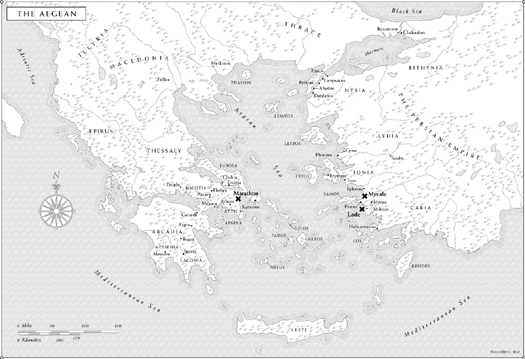
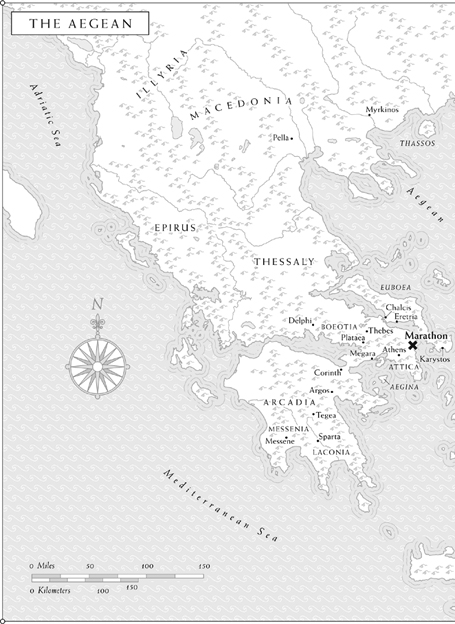
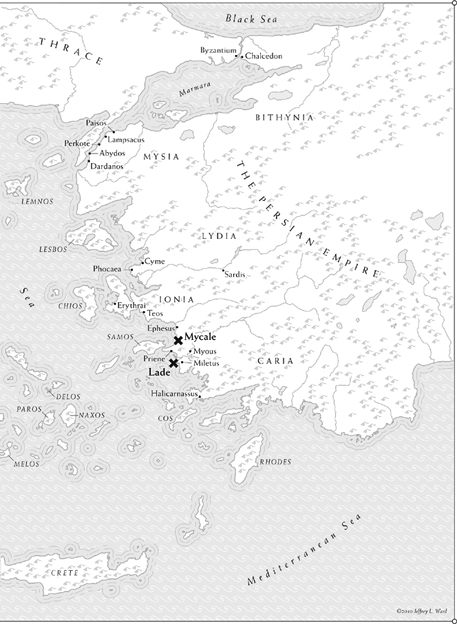
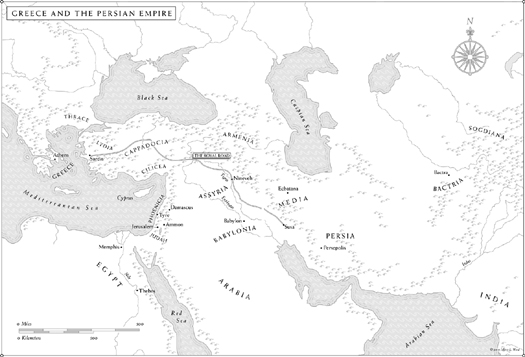
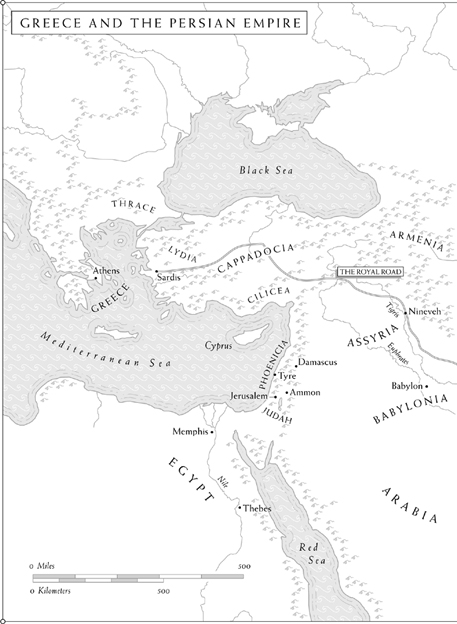
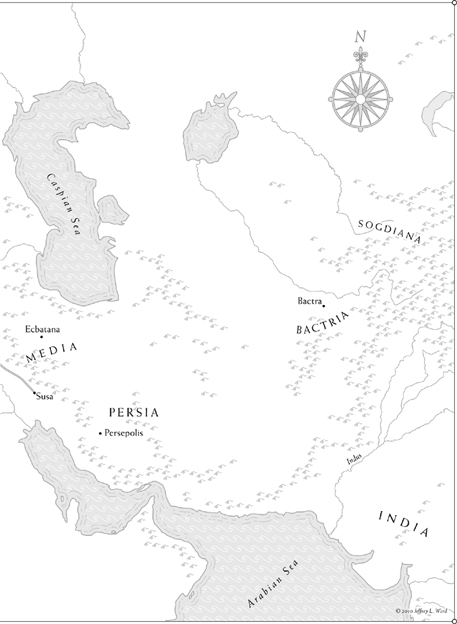
Dramatis Personae
AmasisEgyptian pharaoh who took the throne by force and held it for forty-four years. He spent the last several years of his life preparing to meet an expected Persian offensive into Egypt. He died just before the decisive Battle of Pelusium, which saw the Egyptian army defeated by Cambyses II.
AristagorasTyrant of Miletus. He is credited with starting the Ionian revolt. After the revolt began, he traveled to Greece to gain Spartan support. Failing in that endeavor, he managed to enlist the limited support of Athens. The small force Athens sent to Ionia managed to burn the Persian city of Sardis before returning home. Persian enmity over Sardiss burning was the direct cause of the 490 BC Persian invasion and the Battle of Marathon.
AristidesOne of ten Athenian generals at Marathon and the leader of the Antiochis tribe. Several years after the Battle of Marathon, he lost a political struggle with Themistocles and was banished from Athens. He was recalled to help Athens fend off Xerxes in the 480 BC invasion and commanded the Athenian army at the decisive Battle of Plataea.
ArtaphrenesPersian satrap of Lydia and Ionia during the Ionian revolt.
AstyagesKing of the Medes, overthrown by Cyrus and his Persian allies. Afterward, Cyrus claimed his throne and used the combined Persian and Median armies to build the greatest empire the ancient world had yet seen.
CallimachusAthenian polemarch (commander) at the Battle of Marathon. He was killed at the climax of the fighting.
Cambyses IICyruss son and successor. After winning the Battle of Pelusium in 525 BC, he went on to conquer Egypt. He died, under disputed circumstances, in 522 BC, while returning to the heart of the empire to crush a revolt.
CimonSon of Miltiades and a hero of the Second Persian War against Xerxes. He was politically powerful at the time Herodotus was reciting his history in Athens.
CleisthenesSon of Megacles, a brilliant politician and the sworn enemy of Hippias. He was the driving force behind the establishment and defense of Athenian democracy.
CleomenesSpartan king in the twenty years leading up to Marathon. This remarkable Spartan played kingmaker in Athens, annihilated an Argive army, and humbled Aegina. In no small measure, Cleomenes actions in the few years before the Persian invasion made the Greek victory at Marathon possible.
CroesusKing of Lydia (560546 BC) until he was defeated by Cyrus outside of his capital city of Sardis. His defeat saw the Lydian Empire overthrown and merged into the growing Persian Empire.
CylonAthenian Olympic hero who, with the support of the city of Megara, made an early bid to become tyrant of Athens. The bid failed, and although he escaped, most of his followers were slaughtered after they surrendered. The killers were led by a member of the Alcmaeonidae clan. The blood guilt associated with this act persisted for over a century and was always a major influence on Athenian politics.
CyrusStarting as the petty king of a small Persian kingdom, Ansan, he led a successful revolt against the Medes. Before his death, he had conquered the Lydian and Babylonian empires and incorporated them into the Persian Empire. Cyrus was the greatest empire builder the ancient world saw until Alexander the Great over two centuries later. He ruled from 559 BC to 530 BC.
DariusA Persian noble who along with seven other young nobles made a bid for the Persian throne after the death of Cambyses II. After a year of civil war, Darius eventually secured his hold on power. He proved himself a first-rate administrator and was responsible for building the infrastructure and institutions of the empire that allowed it to last for two hundred years. It was by Dariuss command that the Persian army was sent to destroy Athens in 490 BC.




